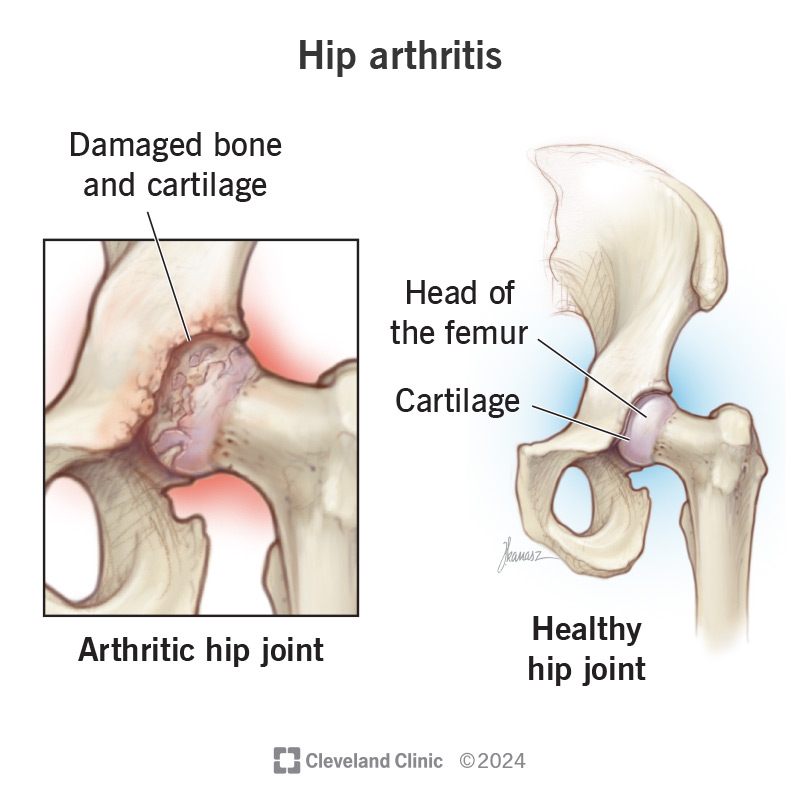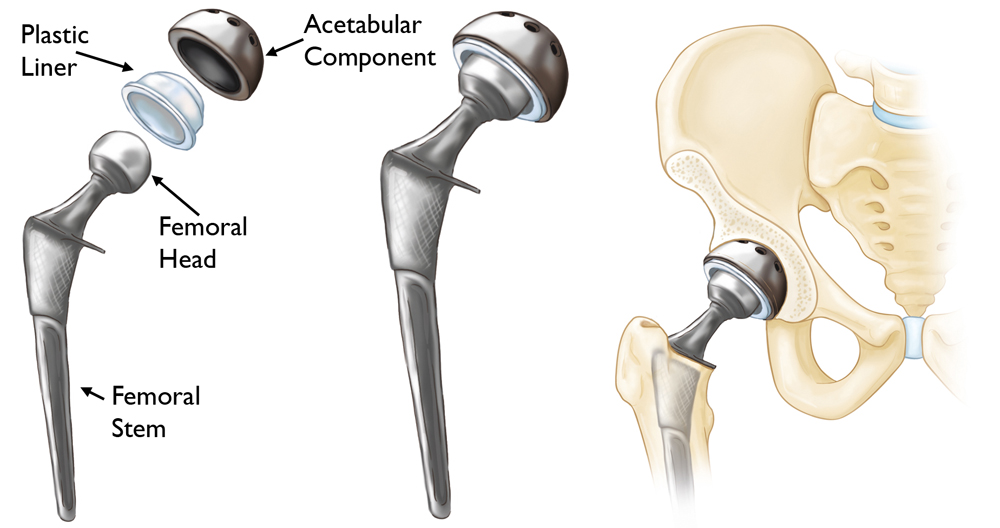
Hip Replacement Surgery
Everything You Need to Know
Hip replacement surgery is a procedure in which a damaged or worn-out hip joint is replaced with an artificial joint, called a prosthesis. It is a common and highly successful procedure that helps relieve pain and improve mobility in people suffering from severe hip conditions.
Who Needs Hip Replacement Surgery?
Hip replacement is recommended for individuals who have severe hip pain and difficulty in performing daily activities such as walking, climbing stairs, or even sitting for long periods. The most common reasons for needing a hip replacement include:
- Osteoarthritis: Age-related wear and tear of the hip joint.
- Rheumatoid Arthritis: An autoimmune disease causing joint inflammation.
- Hip Fractures: Breaks in the hip bone due to injury or falls.
- Avascular Necrosis: A condition where blood supply to the hip bone is reduced, leading to bone damage.
- Other Hip Diseases: Conditions like hip dysplasia (abnormal joint development) or previous injuries that lead to joint deterioration.
Types of Hip Replacement Surgery
There are three main types of hip replacement surgeries:
- Total Hip Replacement (THR): Both the ball and socket of the hip joint are replaced with artificial parts.
- Partial Hip Replacement (Hemiarthroplasty): Only the ball part of the hip joint is replaced, usually performed for hip fractures.
- Hip Resurfacing: The ball part of the hip joint is reshaped and capped with a metal covering instead of being replaced.
How is the Surgery Performed?
- Anesthesia: Spinal or general anesthesia is given.
- Incision: A surgical incision is made over the hip joint.
- Removing Damaged Parts: The damaged bone and cartilage are removed.
- Implant Placement: Artificial components (prosthesis) are inserted into the hip.
- Fixation: The implant is secured in place using cement or a press-fit technique.
- Closure: The incision is closed, and recovery begins.


Recovery and Rehabilitation
- Hospital Stay: Usually 2-5 days, depending on the patient's condition.
- Physical Therapy: Helps regain strength, balance, and mobility.
- Pain Management: Medications and ice therapy to reduce pain and swelling.
- Home Exercises: Helps improve flexibility and prevent stiffness.
- Walking Aids: Crutches or a walker may be needed initially.
Benefits of Hip Replacement Surgery
- Relief from chronic hip pain.
- Improved mobility and quality of life.
- Ability to perform daily activities without discomfort.
- Long-lasting results, with most implants lasting 15-20 years or more.
Risks and Complications
- Infection at the surgical site.
- Blood clots in the legs or lungs.
- Dislocation of the artificial joint.
- Wear and tear of the implant over time.
- Nerve damage (rare but possible).
Final Remarks
Hip replacement surgery is a life-changing procedure for those suffering from severe hip pain. It allows patients to regain their independence and live a pain-free life. If you or a loved one is experiencing chronic hip pain that affects daily activities, consult an orthopedic specialist to explore the best treatment options.